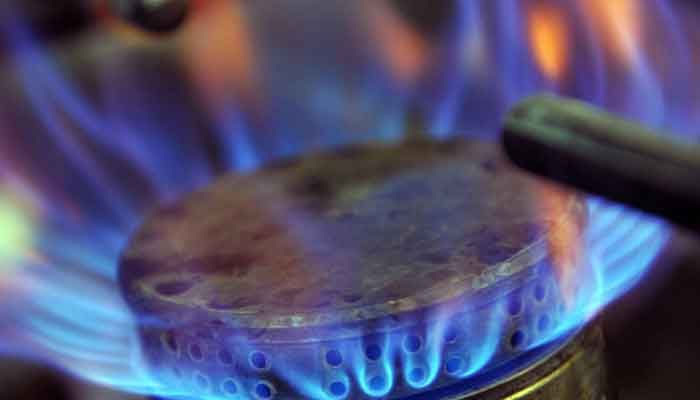No cut in gas tariff from July 1
IMF also wants the government to escalate the gas price of captive power plants
ISLAMABAD: The government has decided not to reduce the gas prices from July 1, 2024 in the light of the Oil and Gas Regulatory Authority (OGRA) decision to lower the gas price by 10 per cent for the next budgetary year.
Rather it has decided to inflate the gas prices for captive power plants (CPPs) by Rs250 per mmBtu to Rs3000 per mmBtu from existing price of Rs2750 per mmBtu as per the line of International Monetary Fund (IMF) diktat.
“The government for all other categories, except for CPPs, has decided to maintain the gas prices at the existing level and this is how the government is anticipating Rs110-115 billion as surplus revenue after meeting the required revenue requirements for the next financial year.
“The surplus revenue will be utilised to offload the existing circular debt in a staggered manner that has increased to a whopping Rs2900 billion. The prior years’ losses have swelled to Rs1500 billion,” senior officials of the Energy Ministry told The News.
Petroleum Division top functionaries have communicated to OGRA that Sui gas companies should reduce the circular debt with the help of the surplus revenue. The Fund argues that captive power plants have 30-35pc efficiency, wasting the huge quantum of natural gas. Most of the CPPs are installed in the Sui Southern network. The IMF wants the government to connect all the CPPs with the national grid electricity. “The said plants, by using natural gas as input fuel, not only generate electricity for their industrial consumption but some of them also sell the power generated by natural gas to electric power distribution companies (Discos).”
The IMF also wants, they said, the government to escalate the gas price of captive power plants at par with the RLNG prices and the government would have to implement it from January 1, 2025, the last deadline for increasing the tariff of captive power plants to the level of the RLNG price.
“So we have decided to increase from July 1, 2024 the gas prices of captive power plants by Rs250 per mmBtu and the remaining hike of Rs700 per mmBtu will become effective from January 1, 2025, and this is how the government would meet the deadline of the IMF.”
The Petroleum Division had earlier asked the Finance Division to allocate funds to offload portion of the circular debt, that had piled up to Rs260 billion from FY19 to FY23 because of the RLNG diversion cost to the domestic sector. But in the budget for FY25, the finance ministry did not allocate any subsidy to this effect with the understanding that gas prices would not be decreased, as was decided by OGRA, and the surplus, that is to be attained, would be used in decreasing the overall losses in the gas sector.
Currently, the government did not extend the subsidy to any domestic consumer for using natural gas as it is the industrial consumers or high-end domestic consumers, who are giving the net cross-subsidy of Rs110 billion per annum to the protected and some non-protected consumers. The Fund also asked the government functionaries to ensure gas tariff adjustments twice a year, firstly from July 1 and secondly from January 1, so that a new surge in gas circular debt could not emerge.
-
 Social Media Addiction ‘like Smoking’: Mumsnet Calls For Under-16s Ban With Cigarette-style Warnings
Social Media Addiction ‘like Smoking’: Mumsnet Calls For Under-16s Ban With Cigarette-style Warnings -
 Andrew Mountbatten, Virginia Giuffre's Photos Attached To Buckingham Palace Gates
Andrew Mountbatten, Virginia Giuffre's Photos Attached To Buckingham Palace Gates -
 Everything We Know About Bruce Willis Frontotemporal Dementia
Everything We Know About Bruce Willis Frontotemporal Dementia -
 Singapore's Grab Plans AI-driven Expansion And New Services To Boost Profit By 2028
Singapore's Grab Plans AI-driven Expansion And New Services To Boost Profit By 2028 -
 Adele Reveals How She 'snapped Out Of' Sever Postpartum Depression
Adele Reveals How She 'snapped Out Of' Sever Postpartum Depression -
 ‘Chinamaxxing’ Explained: Inside Viral Gen Z Trend Taking Over TikTok And Instagram
‘Chinamaxxing’ Explained: Inside Viral Gen Z Trend Taking Over TikTok And Instagram -
 Fears Erupt About Sarah Ferguson Pulling A ‘Harry’ While Sitting On A King’s Ransom: ‘Her Leverage Still Stands’
Fears Erupt About Sarah Ferguson Pulling A ‘Harry’ While Sitting On A King’s Ransom: ‘Her Leverage Still Stands’ -
 Lisa Rinna Slams Andy Cohen For His Below The Belt Move: 'So Shady'
Lisa Rinna Slams Andy Cohen For His Below The Belt Move: 'So Shady' -
 Stunning New Photos Of The Milky Way Shed Light On How Stars Are Formed
Stunning New Photos Of The Milky Way Shed Light On How Stars Are Formed -
 Prince Harry, Meghan Face Fresh Calls To Lose Royal Titles Over ‘pseudo-royal’ Visit
Prince Harry, Meghan Face Fresh Calls To Lose Royal Titles Over ‘pseudo-royal’ Visit -
 Gordon Ramsay On His Basal Cell Carcinoma Diagnosis
Gordon Ramsay On His Basal Cell Carcinoma Diagnosis -
 Fukushima Decommissioning: Japan Deploys Snake-like Robot To Remove Nuclear Debris
Fukushima Decommissioning: Japan Deploys Snake-like Robot To Remove Nuclear Debris -
 Brenda Song Turns Macaulay Culkin's 'Home Alone' Into 'terrible' Lesson: 'Children Have To Be A Little Scared'
Brenda Song Turns Macaulay Culkin's 'Home Alone' Into 'terrible' Lesson: 'Children Have To Be A Little Scared' -
 MrBeast Vows To Book Only Starlink-equipped Flights As Global Airline Adoption Surges
MrBeast Vows To Book Only Starlink-equipped Flights As Global Airline Adoption Surges -
 Kim Jong Un Says North Korea Ready To ‘get Along’ With US But Sets Key Condition
Kim Jong Un Says North Korea Ready To ‘get Along’ With US But Sets Key Condition -
 Andrew Fears What Comes Next As Jeffrey Epstein Scandal Deepens
Andrew Fears What Comes Next As Jeffrey Epstein Scandal Deepens




